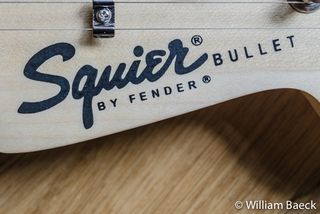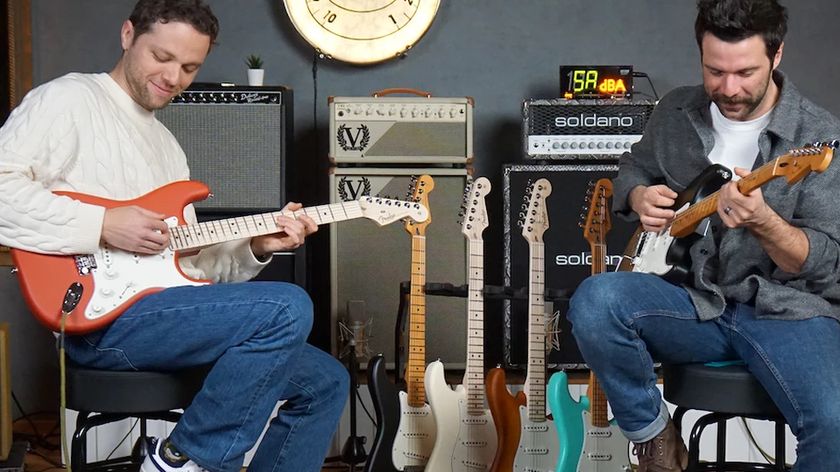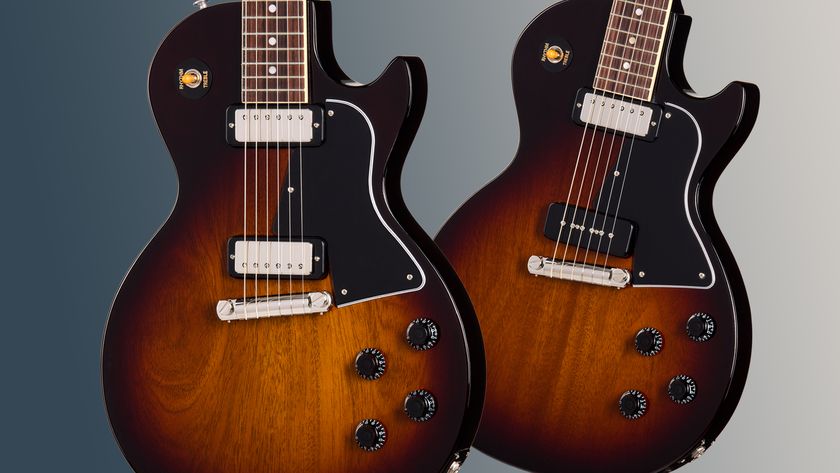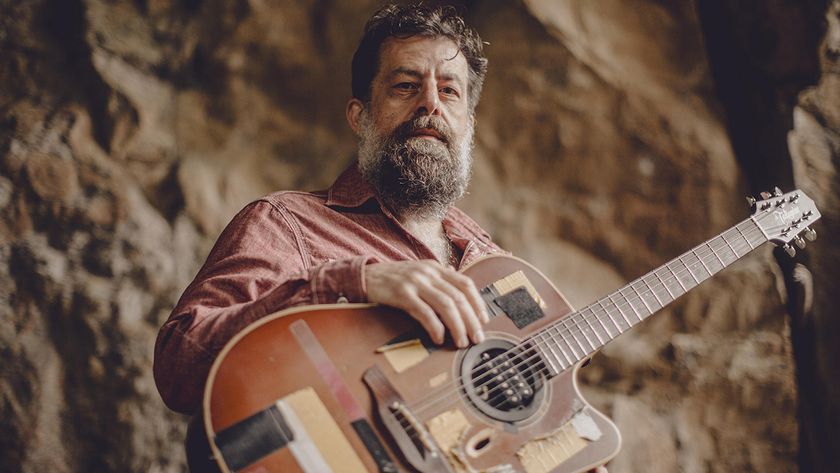Are You a Headstock Snob? Meet the Egoless Guitar

Used to be, it was always about the headstock with me. Specifically, those that carried the names of the great American makers Gibson, Fender, Martin, Guild, Rickenbacker, et al.
Those were the golden names of my youth. The ones my heroes played. They were aspirational guitars and I dreamed of having one of each someday.
I was a headstock snob, and it showed.
When I went shopping, I might as well have put on Gucci sunglasses and stuck a Chihuahua named Sprinkles in my tote bag. I was one of those bedroom guitarists who are the delight of the high-end guitar store. I would not even think of buying a budget instrument made overseas.
But one day I had to take a different approach. With only $100 to spend, I told myself I wasn’t exactly slumming, just going to the guitar store to buy an electric guitar I could leave on the couch, take to the park or bring on the bus to jams without worrying about it getting banged up or stolen.
Without planning it, this let me abandon my preconceptions about what—or rather who—makes an acceptable guitar. So off I went to the store. Just inside the automatic doors, blocking my view of the “real” guitars, was a display of Squier Bullet hardtail Strats.
This was definitely not the kind of guitar I’d normally look at. It was bad enough that Squier was Fender’s diffusion brand, but its Bullet line was the beginner’s range, something for youngsters who someday aspired to the kind of wealth that would enable them to buy an actual Squier, without the Bullet caveat.
Get The Pick Newsletter
All the latest guitar news, interviews, lessons, reviews, deals and more, direct to your inbox!
I sorted through the Squier Bullets to find the one I liked best. That gave me my first two surprises: my favorite of the bunch was not only extremely lightweight; it also had a nice neck. Then I plugged it in and played. That surprise was even bigger: Each position on the five-way switch instantly recalled the familiar sounds I like about really good Strats.
Which, of course, wasn’t possible. Not in a bottom-of-the-line guitar that had been mass-produced in Indonesia.
I decided to benchmark it right there in the store. I switched from the ’65 Deluxe Reverb reissue I’d been using and fired up a ’59 Bassman LTD reissue. Down from the wall came a basic American Strat to pit against the Bullet. The Bullet was more to my liking. Something was wrong here.
I tried successively higher-end Strats. I still preferred the Bullet. Not that the Fender Strats were bad. Not at all. Other players might well have chosen them over the Bullet. Certainly the Fenders were made with higher-quality components. But now that I didn’t care about the name on the headstock, I was judging based on how I wanted to use the guitar and what I wanted to hear from it.
The result was a very low-end instrument I was really enjoying playing. My view of the immutable hierarchy of electric guitars had just taken a significant hit.
Clearly I was having one of those dreams that occasionally come to guitarists—the one about wandering into a guitar store and finding a great guitar stupidly cheap. Except that the salesman didn’t look like Scarlett Johansson.
Dream or not, I bought the Bullet. The price out the door for my new guitar from Indonesia? $70 plus tax, about the cost of a guitar pedal.
If someone else had told me this story, I would have explained to them that they were merely having a brief, initial positive reaction to the excitement of finding a shiny new guitar for under a hundred bucks that looked and played vaguely like a Fender Stratocaster.
But I made that purchase in 2007. I’ve had years since then to play my Bullet through my own amps and side-by-side with vintage Strats. And the Bullet still holds up just fine. It has that famously warm yet detailed clarity that remains articulate without ever sounding harsh.
For the record, my two pre-CBS Strats sound better, more organic, leaving at least some of my presumptions intact, thank goodness. And I’ve played other Bullets since then that didn’t strike me as anything special in terms of feel or sound. But my 2007 Bullet is the electric I reach for most these days. So my ego, though whole, is maybe just that tiny bit smaller than it was before.
And thank goodness for that too.
William Baeck is a writer, photographer and hack guitarist living in London. You can check out his webpage at williambaeck.com and reach him on Facebook and Twitter.

“Satin Stratocaster dreams”: Fender and Thomann have produced two new exclusive Stratocaster lines – and their prices rival existing US and Mexico-made models

“A new take on the classic”: Gibson gives its Les Paul Special an ultra-rare pickup overhaul with new Mini Humbucker models










